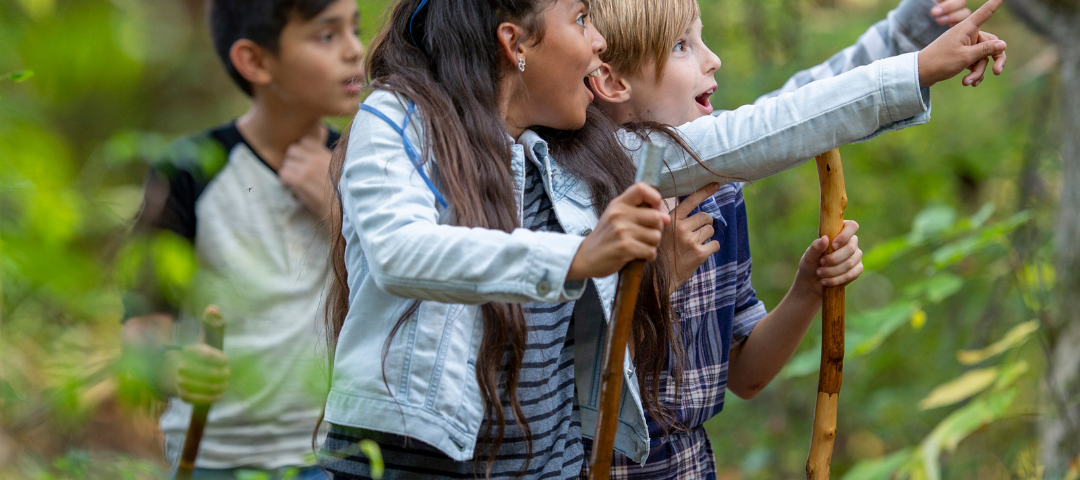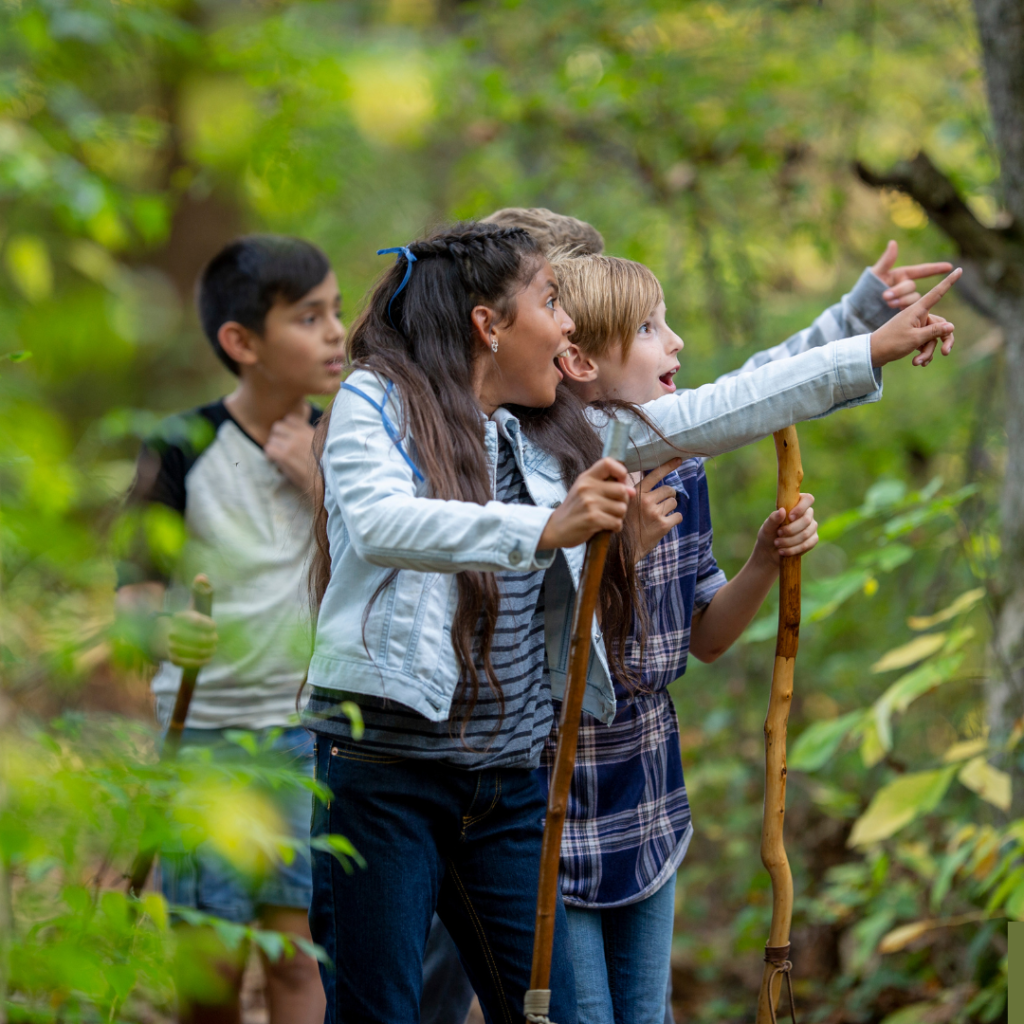This website uses cookies so that we can provide you with the best user experience possible. Cookie information is stored in your browser and performs functions such as recognising you when you return to our website and helping our team to understand which sections of the website you find most interesting and useful.

Surviving Hard Times as a Single Parent: The Unseen Struggles
18th November 2024
Family Christmas Gift Guide 2024
29th November 2024How Adventure Trips Support Emotional and Social Development in Young Learners

*This is a collaborative post.
Adventure trips have become a vital part of modern education, providing young learners with experiences that extend far beyond the classroom. These trips offer children opportunities to develop emotional resilience, strengthen social skills, and build self-confidence in a safe and structured environment. By engaging in challenging and enjoyable activities, students grow in ways that contribute to their overall personal development.

Fostering Emotional Resilience
Adventure trips often involve stepping into unfamiliar situations, whether it’s climbing a high ropes course, trying out kayaking, or staying away from home for the first time. These experiences help children learn to navigate uncertainty and adapt to new environments.
Each challenge conquered on an adventure trip, no matter how small, contributes to a child’s emotional resilience. Overcoming fears, managing setbacks, or persisting through a tough activity builds a sense of achievement and teaches students that they are capable of handling life’s ups and downs.
Encouraging Self-Confidence
One of the most significant benefits of adventure trips is the boost in self-confidence they provide. Activities that require problem-solving, decision-making, or physical effort help students recognise their own abilities.
For example, successfully completing a zip line or solving a team challenge reinforces the belief that they can overcome obstacles. This confidence often carries over into other areas of their lives, encouraging them to tackle academic, social, and personal challenges with greater assurance.
Strengthening Teamwork and Communication
Many activities on adventure trips require collaboration and teamwork. Whether it’s building a raft, navigating an orienteering course, or participating in a group relay, students must work together to succeed.
These experiences teach children to listen to others, share ideas, and support their peers. They also learn the importance of compromise and patience, particularly when working with classmates they may not normally interact with. Developing these skills strengthens relationships and prepares students for collaborative environments in school and beyond.
Promoting Empathy and Inclusivity
Adventure trips bring children together in ways that foster empathy and inclusivity. By working closely with a diverse group of peers, students gain a better understanding of different perspectives and experiences.
Activities often highlight the importance of each individual’s contribution, regardless of skill level or confidence. This sense of shared responsibility helps students appreciate the value of inclusivity and encourages them to support one another, fostering a sense of community and belonging.
Encouraging Emotional Expression
Being in a new environment, away from the routine of school and home, provides children with opportunities to explore and express their emotions. Adventure trips often include reflective moments, such as journaling, group discussions, or sharing experiences around a campfire.
These activities encourage students to articulate their feelings, whether it’s pride in their achievements, gratitude for their peers, or joy at trying something new. Learning to express emotions in a healthy way is an essential component of emotional intelligence and helps students build stronger relationships.
Teaching Conflict Resolution
Adventure trips are not without their challenges, and occasional disagreements or misunderstandings are a natural part of group activities. These situations provide valuable lessons in conflict resolution, teaching students how to address issues constructively and work towards solutions.
Through guided support from teachers and trip leaders, children learn to communicate effectively, apologise when necessary, and find common ground. These skills are essential for maintaining positive relationships both in and out of school.
Building Leadership Skills
Adventure trips often provide opportunities for students to step into leadership roles. Whether it’s guiding a team through an obstacle course, organising a group during a challenge, or mentoring younger peers, these moments help students develop decision-making and organisational skills.
Leadership activities also teach children how to motivate others, delegate tasks, and take responsibility for their team’s success. These skills are invaluable for fostering confidence and preparing students for future roles in their communities and schools.
Supporting Physical and Mental Wellbeing
The physical activities involved in adventure trips, such as climbing, hiking, or paddling, promote health and fitness while also boosting mental wellbeing. Being active releases endorphins, which enhance mood and reduce stress, helping students feel more positive and energised.
Additionally, spending time outdoors in natural settings has been shown to improve focus, creativity, and emotional regulation. These benefits create a nurturing environment where young learners can thrive both physically and emotionally.
Linking Learning to Real-Life Experiences
Adventure trips often incorporate educational elements that link directly to the curriculum. For example:
- Science: Exploring ecosystems or conducting environmental experiments.
- History: Visiting historical sites and learning about local heritage.
- Geography: Understanding maps, landforms, and navigation.
By connecting academic lessons to hands-on experiences, students gain a deeper appreciation of what they’re learning and see its relevance to the real world.
Creating Lasting Memories and Bonds
Adventure trips provide experiences that children often remember fondly for years to come. The excitement of trying new activities, the laughter shared with peers, and the pride of overcoming challenges create memories that strengthen social bonds.
For many students, these shared moments foster a sense of belonging and build positive associations with teamwork and collaboration, which can enhance their relationships and engagement back at school.
Practical Tips for Planning an Effective Adventure Trip
To maximise the emotional and social benefits of an adventure trip, careful planning is essential. Here are some tips:
- Set Clear Objectives: Define the trip’s goals, such as building confidence, fostering teamwork, or complementing the curriculum.
- Choose the Right Provider: Work with experienced organisations that specialise in primary school trips UK to ensure a safe and enriching experience.
- Prepare Students: Discuss what to expect, including challenges they may face, and encourage an open mindset.
- Engage Parents: Share the benefits of the trip and provide practical information to address any concerns.
- Reflect and Celebrate: Allow time for students to reflect on their experiences and celebrate their achievements to reinforce the lessons learned.
Conclusion
Adventure trips are a powerful tool for supporting the emotional and social development of young learners. By encouraging independence, fostering teamwork, and providing opportunities to build resilience, these experiences equip children with the skills they need to navigate both the challenges and joys of life.
Through carefully planned primary school trips UK, educators can create transformative experiences that help students grow into confident, empathetic, and socially capable individuals. These lessons and memories remain with them long after the trip ends, shaping their personal and academic journeys for years to come.


